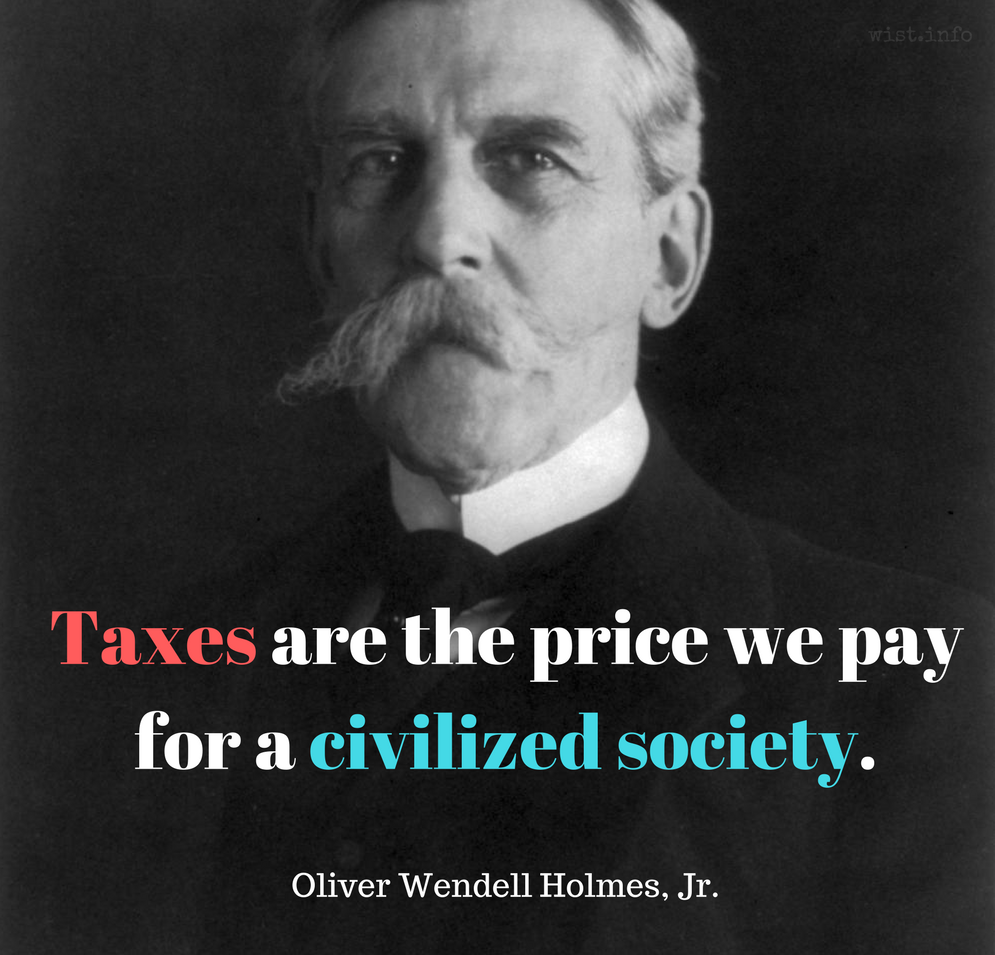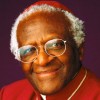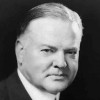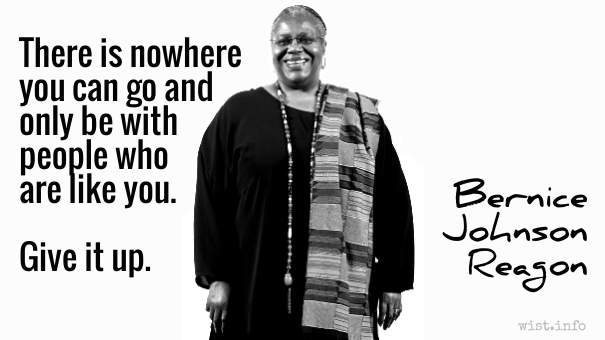Quotations about:
society
Note not all quotations have been tagged, so Search may find additional quotes on this topic.
Those who retire from the world on akount ov its sin and peskyness must not forgit that they hav got tew keep kompany with a person who wants just as much watching as ennyboddy else.
[Those who retire from the world on account of its sin and peskiness must not forget that they have got to keep company with a person who wants just as much watching as anybody else.]
Look not every man on his own things, but every man also on the things of others.
The Bible (The New Testament) (AD 1st - 2nd C) Christian sacred scripture
Philippians 2:4 (KJV)
(Source)
Alternate translations:
- "Do not merely look out for your own personal interests, but also for the interests of others." (NASB)
- "Not looking to your own interests but each of you to the interests of the others." (NIV, NRSV)
You come into the world alone and you go out of the world alone yet it seems to me you are more alone while living than even going and coming.
Emily Carr (1871-1945) Canadian artist and writer
Hundreds and Thousands: The Journals of Emily Carr, “16 July 1933” (1966)
The virtues of society are the vices of the saint. The terror of reform is the discovery that we must cast away our virtues, or what we have always esteemed such, into the same pit that has consumed our grosser vices.
Ralph Waldo Emerson (1803-1882) American essayist, lecturer, poet
“Circles,” Essays: First Series (1841)
(Source)
It is not difficult to show, by abundant instances, that to extend the bounds of what may be called moral police, until it encroaches on the most unquestionably legitimate liberty of the individual, is one of the most universal of all human propensities.
John Stuart Mill (1806-1873) English philosopher and economist
On Liberty, ch. 4 “Of the Limits to the Authority of Society Over the Individual” (1859)
(Source)
For in a republic, who is “the Country”? Is it the Government which is for the moment in the saddle? Why, the Government is merely a servant — merely a temporary servant; it cannot be its prerogative to determine what is right and what is wrong, and decide who is a patriot and who isn’t. Its function is to obey orders, not originate them. Who, then, is “the country?” Is it the newspaper? Is it the pulpit? Is it the school-superintendent? Why, these are mere parts of the country, not the whole of it; they have not command, they have only their little share in the command. They are but one in the thousand; it is in the thousand that command is lodged; they must determine what is right and what is wrong; they must decide who is a patriot and who isn’t.
Every society honors its live conformists, and its dead troublemakers.
Mignon McLaughlin (1913-1983) American journalist and author
The Neurotic’s Notebook, ch. 7 (1963)
(Source)
In a virtuous community men of sense and principle will always be placed at the head of affairs. In a declining state of public morals men will be so blinded to their true interests as to put the incapable and unworthy at the helm. It is therefore vain to complain of the follies or crimes of a government. We must lay the hands on our own hearts and say, Here is the sin that makes the public sin.
Truth is found neither in traditional capitalism nor in classical communism. Each represents a partial truth. Capitalism fails to see the truth in collectivism. Communism fails to see the truth in individualism. Capitalism fails to realize that life is social. Communism fails to realize that life is personal.
Martin Luther King, Jr. (1929-1968) American clergyman, civil rights leader, social activist, preacher
Where Do We Go from Here: Chaos or Community? (1967)
(Source)
The only index by which to judge a government or a way of life is by the quality of the people it acts upon. No matter how noble the objectives of a government, if it blurs decency and kindness, cheapens human life, and breeds ill will and suspicion — it is an evil government.
Eric Hoffer (1902-1983) American writer, philosopher, longshoreman
The Passionate State of Mind, Aphorism 147 (1955)
(Source)
Society, my dear, is like salt water, good to swim in but hard to swallow.
Arthur Stringer (1874-1950) Canadian-American novelist, screenwriter, poet
The Silver Poppy, ch. 8, epigraph (1903)
(Source)
The degree of civilization in a society can be judged by entering its prisons.
Fyodor Dostoyevsky (1821-1881) Russian novelist
(Attributed)
Sometimes cited to Dostoyevsky's The House of the Dead (1862) [tr. Garnett (1957)], which is a semi-autobiographical work about a Siberian prison camp, but the quotation cannot be found there.
See also Buck, Johnson.
Society in every state is a blessing, but Government, even in its best state, is but a necessary evil; in its worst state an intolerable one: for when we suffer, or are exposed to the same miseries by a Government, which we might expect in a country without Government, our calamity is heightened by reflecting that we furnish the means by which we suffer.
Thomas Paine (1737-1809) American political philosopher and writer
Common Sense, “On the Origin and Design of Government in General” (14 Feb 1776)
(Source)
The necessity of establishing some form of government [is] to supply the defect of moral virtue.
Thomas Paine (1737-1809) American political philosopher and writer
Common Sense, “On the Origin and Design of Government in General” (14 Feb 1776)
Full text.
But he who is unable to live in society, or who has no need because he is sufficient for himself, must be either a beast or a god: he is no part of a state.
[εἰ γὰρ μὴ αὐτάρκης ἕκαστος χωρισθείς, ὁμοίως τοῖς ἄλλοις μέρεσιν ἕξει πρὸς τὸ ὅλον, ὁ δὲ μὴ δυνάμενος κοινωνεῖν ἢ μηθὲν δεόμενος δι᾿ αὐτάρκειαν οὐθὲν μέρος πόλεως, ὥστε ἢ θηρίον ἢ θεός.]
Aristotle (384-322 BC) Greek philosopher
Politics [Πολιτικά], Book 1, ch. 2, sec. 14 / 1253a.27 [tr. Jowett (1885)]
(Source)
Original Greek. Alternate translations:
- "But the man who has not the capability of association, or requires nothing from outside through his own complete resources, is no part of a state; so that he must be either a brute (below the level of man), or a God (above it)." [tr. Bolland (1877)]
- "He that is incapable of society, or so complete in himself as not to want it, makes no part of a city, as a beast or a god." [tr. Ellis (1912)]
- "A man who is incapable of entering into partnership, or who is so self-sufficing that he has no need to do so, is no part of a state, so that he must be either a lower animal or a god." [tr. Rackham (1932)]
- "One who is incapable of participating or who is in need of nothing through being self-sufficient is no part of a city, and so is either a beast or a god." [tr. Lord (1984)]
- "Anyone who cannot live in a community with others, or who does not need to because of his self-sufficiency, is no part of a city, so that he is either a wild beast or a god." [tr. Reeve (2007)]
- "If each person when separated is not sufficient on his own, just as other parts are to the whole while a person who is incapable of joining commonwealth or does not need any part of a state because of self-sufficiency is either a beast or a god." [tr. @sentantiq (2018)]
When religion becomes organzied, man ceases to be free. It is not God that is worshiped but the group or the authority that claims to speak in his name. Sin becomes disobedience to authority and not violation of integrity.
Sarvepalli Radhakrishnan (1888-1975) Indian philosopher, statesman
East and West: Some Reflections, Preface (1955)
(Source)
Variants:
- "It is not God that is worshiped but the authority that claims to speak in His name."
- An expanded version in Religion, Science and Culture, ch. 3 "The World Communities of Ideals" (1965) includes an inserted second sentence: "If we think that it is a question of life or death -- what concept of God we accept -- then our hearts are filled with fury."
From these things therefore it is clear that the city-state is a natural growth, and that man is by nature a political animal, and a man that is by nature and not merely by fortune citiless is either low in the scale of humanity or above it, like the “clanless, lawless, hearthless” man reviled by Homer, for one by nature unsocial is also ‘a lover of war’ inasmuch as he is solitary, like an isolated piece at draughts.
[ἐκ τούτων οὖν φανερὸν ὅτι τῶν φύσει ἡ πόλις ἐστί, καὶ ὅτι ὁ ἄνθρωπος φύσει πολιτικὸν ζῷον, καὶ ὁ ἄπολις διὰ φύσιν καὶ οὐ διὰ τύχην ἤτοι φαῦλός ἐστιν, ἢ κρείττων ἢ ἄνθρωπος: ὥσπερ καὶ ὁ ὑφ᾽ Ὁμήρου λοιδορηθεὶς “ἀφρήτωρ ἀθέμιστος ἀνέστιος:” ἅμα γὰρ φύσει τοιοῦτος καὶ πολέμου ἐπιθυμητής, ἅτε περ ἄζυξ ὢν ὥσπερ ἐν πεττοῖς.]
Aristotle (384-322 BC) Greek philosopher
Politics [Πολιτικά], Book 1, ch. 2 / 1253a.2 [tr. Rackham (1932)]
(Source)
See Homer. Original Greek. Alternate translations:
From these considerations, therefore, it is clear that the State is one of Nature's productions, and that man is by nature a social animal, and that a man who is without a country through natural taste and not misfortune is certainly degraded (or else a being superior to man), like that man reviled by Homer as clanless, lawless, homeless. For he is naturally of this character and desirous of war, since he has no ties, like an exposed piece in the game of backgammon.
[tr. Bolland (1877)]
Hence it is evident that the state is a creation of nature, and that man is by nature a political animal. And he who by nature and not by mere accident is without a state, is either a bad man or above humanity; he is like the "tribeless, lawless, hearthless one," whom Homer denounces -- the natural outcast is forthwith a lover of war; he may be compared to an isolated piece at draughts.
[tr. Jowett (1885)]
Hence it is evident that a city is a natural production, and that man is naturally a political animal, and that whosoever is naturally and not accidentally unfit for society, must be either inferior or superior to man: thus the man in Homer, who is reviled for being "without society, without law, without family." Such a one must naturally be of a quarrelsome disposition, and as solitary as the birds.
[tr. Ellis (1912)]
From these things it is evident, then, that the city belongs among the things that exist by nature, and that man is by nature a political animal. He who is without a city through nature rather than chance is either a mean sort or superior to man; he is "without clan, without law, without hearth," like the person reproved by Homer; for the one who is such by nature has by this fact a desire for war, as if he were an isolated piece in a game of backgammon.
[tr. Lord (1984)]
We are all tattoed in our cradles with the beliefs of our tribe; the record may seem superficial, but it is indelible. You cannot educate a man wholly out of the superstitious fears which were early implanted in his imagination; no matter how utterly his reason may reject them, he will still feel as the famous woman did about ghosts, Je ne crois pas, mais je les crains, — “I don’t believe in them, but I am afraid of them, nevertheless.”
Any government is in itself an evil insofar as it carries within it the tendency to deteriorate into tyranny. However, except for a very small number of anarchists, everyone of us is convinced that civilized society cannot exist without a government.
Albert Einstein (1879-1955) German-American physicist
“A Reply to the Soviet Scientists” (Dec 1947), Bulletin of Atomic Scientists (Feb 1948)
(Source)
The individual is not accountable to society for his actions in so far as these concern the interests of no person but himself. Advice, instruction, persuasion, and avoidance by other people, if thought necessary by them for their own good, are the only measures by which society can justifiably express its dislike or disapprobation of his conduct.
John Stuart Mill (1806-1873) English philosopher and economist
On Liberty, ch. 5 “Applications” (1859)
(Source)
America! half-brother of the world!
With something good and bad of every land.Philip James Bailey (1816-1902) English poet, lawyer
Festus, Sc. “The Surface” [Festus] (1839)
(Source)
Taxes are what we pay for civilized society.
Oliver Wendell Holmes, Jr. (1841-1935) American jurist, Supreme Court Justice
Compania General De Tabacos De Filipinas v. Collector of Internal Revenue, 275 U.S. 87, 100 (1927) [Dissent]
(Source)
Full text is "Taxes are what we pay for civilized society, including the chance to insure.
References are also found (without citation) to a 1904 speech, "Taxes are the price we pay for a civilized society" (this variation is quoted by the IRS above the entrance of their headquarters). Bartlett's (1980) cites the above wording, but incorrectly claims it was in 1904.
In Felix Frankfurter, Mr. Justice Holmes and the Supreme Court (1938), Holmes is quoted as rebuking a secretary's query about hating to pay taxes: "No, young feller. I like to pay taxes. With them I buy civilization."
More information here.
The reason I don’t worry about society is, nineteen people knocked down two buildings and killed thousands. Hundreds of people ran into those buildings to save them. I’ll take those odds every fucking day.
A decent provision for the poor is the true test of civilization.
Samuel Johnson (1709-1784) English writer, lexicographer, critic
Comment (1770)
(Source)
Quoted by Rev. Dr. Maxwell. In James Boswell, The Life of Samuel Johnson (1791).
See Dostoyevsky, Buck.
Do as most do; and few will speak ill of thee.
Thomas Fuller (1654-1734) English physician, preacher, aphorist, writer
Introductio ad Prudentiam, Vol. 1, # 135 (1725)
(Source)
It seems to me that the distinctions separating the social classes are false; in the last analysis they rest on force.
Albert Einstein (1879-1955) German-American physicist
“What I Believe,” Forum and Century (Oct 1930)
(Source)
This phrase is not found in the parallel "The World As I See It [Mein Weltbild]" the next year.
Without any censorship, in the West fashionable trends of thought and ideas are carefully separated from those which are not fashionable; nothing is forbidden, but what is not fashionable will hardly ever find its way into periodicals or books or be heard in colleges. Legally your researchers are free, but they are conditioned by the fashion of the day. There is no open violence such as in the East; however, a selection dictated by fashion and the need to match mass standards frequently prevent independent-minded people from giving their contribution to public life. There is a dangerous tendency to form a herd, shutting off successful development.
Alexander Solzhenitsen (1918-2008) Russian novelist, emigre [Aleksandr Isayevich Solzhenitsyn]
“A World Split Apart,” Commencement Address, Harvard (8 Jun 1978)
(Source)
I do not preach a social gospel; I preach the Gospel, period. The gospel of our Lord Jesus Christ is concerned for the whole person. When people were hungry, Jesus didn’t say, “Now, is that political, or social?” He said, “I feed you.” […] I can’t believe that you can compartmentalize life and say this is political and this is religious, because for us religion must permeate the whole of life. If people wish to say, “God’s writ does not run in the political sphere,” I want to ask, “Whose does?”
Desmond Tutu (1931-2021) South African cleric, Anglican Archbishop of Cape Town, Nobel Laureate
“The Bishop and South Africa,” interview by Rafael Suarez, Jr., Worldview (Dec 1984)
(Source)
Ah, you flavour everything; you are the vanille of society.
Sydney Smith (1771-1845) English clergyman, essayist, wit
Memoir of the Reverend Sydney Smith, by His Daughter, Lady Holland, Vol. 1, ch. 9 (1855)
(Source)
Practically, I am, nevertheless, compelled to act as if freedom of the will existed. If I wish to live in a civilized community, I must act as if man is a responsible being. I know that philosophically a murderer is not responsible for his crime; nevertheless, I must protect myself from unpleasant contacts. I may consider him guiltless, but I prefer not to take tea with him.
Albert Einstein (1879-1955) German-American physicist
“What Life Means to Einstein,” Interview with G. Viereck, Saturday Evening Post (26 Oct 1929)
(Source)
Edited as "I am compelled to act as if free will existed, because if I wish to live in a civilized society I must act responsibly. I know that philosophically a murderer is not responsible for his crime, but I prefer not to take tea with him," in Viereck, Glimpses of the Great (1930).
When childhood dies, its corpses are called adults and they enter society, one of the politer names of hell. That is why we dread children, even if we love them. They show us the state of our decay.
I believe that that community is already in process of dissolution where each man begins to eye his neighbor as a possible enemy, where non-conformity with the accepted creed, political as well as religious, is a mark of disaffection; where denunciation, without specification or backing, takes the place of evidence; where orthodoxy chokes freedom of dissent; where faith in the eventual supremacy of reason has become so timid that we are not enter our convictions into the open list, to win or lose. Such fears as these are a solvent which can eat out the cement that binds the stones together; they may in the end subject us to a despotism as evil as any that we dread; and they can be allayed only in so far as we refuse to proceed on suspicion, and trust one another until we have tangible ground for misgiving,
Learned Hand (1872-1961) American jurist
“A Plea for the Open Mind and Free Discussion,” speech, University of the State of New York, Albany (1952-10-24)
(Source)
Dishonor in public life has a double poison. When people are dishonorable in private business, they injure only those with whom they deal or their own chances in the net world. When there is a lack of honor in Government, the morals of the whole people are poisoned.
Herbert Hoover (1874-1964) American engineer, bureaucrat, President of the US (1928-32)
Address, Des Moines, Iowa (30 Aug 1951)
(Source)
Many times a day I realize how much my own outer and inner life is built upon the labors of my fellow men, both living and dead, and how earnestly I must exert myself in order to give in return as much as I have received. My peace of mind is often troubled by the depressing sense that I have borrowed too heavily from the work of other men.
Albert Einstein (1879-1955) German-American physicist
“What I Believe,” Forum and Century (Oct 1930)
(Source)
Einstein crafted and recrafted his credo multiple times in this period, and specifics are often muddled by differing translations and by his reuse of certain phrases in later writing. The Forum and Century entry appears to be the earliest. Some important variants:
A hundred times every day I remind myself that my inner and outer life are based on the labors of other men, living and dead, and that I must exert myself in order to give in the same measure as I have received and am still receiving. I am strongly drawn to a frugal life and am often oppressively aware that I am engrossing an undue amount of the labor of my fellow-men.
— "The World As I See It [Mein Weltbild]" [tr. Bargmann (1954)]
A hundred times every day I remind myself that my inner and outer life depend on the labours of other men, living and dead, and that I must exert myself in order to give in the same measure as I have received and am still receiving. I am strongly drawn to the simple life and am often oppressed by the feeling that I am engrossing an unnecessary amount of the labor of my fellowmen.
— "The World As I See It [Mein Weltbild]" [tr. Harris (1934)]
I am often troubled by the thought that my life is based to such a large extent on the work of my fellow human beings, and I am aware of my great indebtedness to them.
[Oft bedrückt mich der Gedanke, in welchem Maße mein Leben auf der Arbeit meiner Mitmenschen aufgebaut ist, und ich weiß, wie viel ich Ihnen schulde.]
— Reduced variant in "My Credo [Mein Glaubensbekenntnis]" (Aug 1932)
Justice is itself the great standing policy of civil society; and any eminent departure from it, under any circumstances, lies under the suspicion of being no policy at all.
Edmund Burke (1729-1797) Anglo-Irish statesman, orator, philosopher
“Reflections on the Revolution in France” (1790)
(Source)
And what is this liberty which must lie in the hearts of men and women? It is not the ruthless, the unbridled will; it is not freedom to do as one likes. That is the denial of liberty, and leads straight to its overthrow. A society in which men recognize no check upon their freedom soon becomes a society where freedom is the possession of only a savage few; as we have learned to our sorrow.
Learned Hand (1872-1961) American jurist
“The Spirit of Liberty,” speech, “I Am an American Day,” New York (1941-05-21)
(Source)
The only part of the conduct of any one, for which he is amenable to society, is that which concerns others. In the part which merely concerns himself, his independence, is, of right, absolute. Over himself, over his own body and mind, the individual is sovereign.
John Stuart Mill (1806-1873) English philosopher and economist
On Liberty, ch. 1 “Introductory” (1859)
(Source)
We are all born charming, frank, and spontaneous and must be civilized before we are fit to participate in society.
It is justice, not charity, that is wanting in the world!
Mary Wollstonecraft (1759-1797) English social philosopher, feminist, writer
A Vindication of the Rights of Women, ch. 4 (1792)
(Source)
ULYSSES: O, when degree is shaked,
Which is the ladder of all high designs,
The enterprise is sick. How could communities,
Degrees in schools and brotherhoods in cities,
Peaceful commerce from dividable shores,
The primogeneity and due of birth,
Prerogative of age, crowns, scepters, laurels,
But by degree stand in authentic place?
Take but degree away, untune that string,
And hark what discord follows.William Shakespeare (1564-1616) English dramatist and poet
Troilus and Cressida, Act 1, sc. 3, l. 105ff (1.3.105-114) (1602)
(Source)
Men of genius are often dull and inert in society, as a blazing meteor, when it descends to earth, is only a stone.
I often wonder whether we do not rest our hopes too much upon constitutions, upon laws and upon courts. These are false hopes; believe me, these are false hopes. Liberty lies in the hearts of men and women; when it dies there, no constitution, no law, no court can even do much to help it. While it lies there it needs no constitution, no law, no court to save it.
Learned Hand (1872-1961) American jurist
“The Spirit of Liberty,” speech, “I Am an American Day,” New York (1941-05-21)
(Source)
Injustice anywhere is a threat to justice everywhere. We are caught in an inescapable network of mutuality, tied in a single garment of destiny. Whatever affects one directly, affects all indirectly.
Martin Luther King, Jr. (1929-1968) American clergyman, civil rights leader, social activist, preacher
Letter from Birmingham Jail (16 Apr 1963)
(Source)
Another phrase King used on repeated occasions, e.g., "Injustice anywhere is a threat to justice everywhere. Therefore, no American can afford to be apathetic about the problem of racial justice. It is a problem that meets every man at his front door" -- "The Rising Tide of Racial Consciousness," Speech, National Urban League, New York (6 Sep 1960).
Good manners are the settled medium of social, as specie is of commercial, life; returns are equally expected for both.
Lord Chesterfield (1694-1773) English statesman, wit [Philip Dormer Stanhope]
Letter to his son, #304 (25 Dec 1758)
(Source)
Few people are capable of expressing with equanimity opinions which differ from the prejudices of their social environment. Most people are even incapable of forming such opinions.
[Wenige sind imstande, von den Vorurteilen der Umgebung abweichende Meinungen gelassen auszusprechen; die Meisten sind sogar unfähig, überhaupt zu solchen Meinungen zu gelangen.]
Albert Einstein (1879-1955) German-American physicist
“Neun Aphorismen” (23 May 1953), Essays Presented to Leo Baeck on the Occasion of His Eightieth Birthday (1954) [Einstein Archives 28-962]
(Source)
The worst of what is called good society is not only that it offers us the companionship of people who are unable to win either our praise or our affection, but that it does not allow of our being that which we naturally are; it compels us, for the sake of harmony, to shrivel up, or even alter our shape altogether. Intellectual conversation, whether grave or humorous, is only fit for intellectual society; it is downright abhorrent to ordinary people, to please whom it is absolutely necessary to be commonplace and dull. This demands an act of severe self-denial; we have to forfeit three-fourths of ourselves in order to become like other people.
[Demnach hat die Gesellschaft, welche man die gute nennt, nicht nur den Nachtheil, daß sie uns Menschen darbietet, die wir nicht loben und lieben können, sondern sie läßt auch nicht zu, daß wir selbst seien, wie es unsrer Natur angemessen ist; vielmehr nöthigt sie uns, des Einklanges mit den Anderen wegen, einzuschrumpfen, oder gar uns selbst zu verunstalten. Geistreiche Reden oder Einfälle gehören nur vor geistreiche Gesellschaft: in der gewönlichen sind sie geradezu verhaßt; denn um in diser zu gefallen, ist durchaus notwendig, daß man platt und bornirt sei. In solcher Gesellschaft wir daher, mit schwerer Selbstverleugnung, 3/4 unsrer selbst aufgeben, um uns den Andern zu verähnlichen.]
Arthur Schopenhauer (1788-1860) German philosopher
Parerga and Paralipomena, Vol. 1, “Aphorisms on the Wisdom of Life [Aphorismen zur Lebensweisheit],” ch. 5 “Counsels and Maxims [Paränesen und Maximen],” § 2.9 (1851) [tr. Saunders (1890)]
(Source)
(Source (German)). Alternate translation:
Accordingly, society that is called good not only has the drawback of offering us men whom we cannot praise and like, but also it will not allow us to be ourselves in harmony with our nature. On the contrary, it compels us, for the sake of agreeing with others, to shrivel up and even alter our shape. Intellectual talking and ideas are fit only for intellectual society; in ordinary society they are positively loathed, for here in order to go down well it is absolutely necessary to be dull and narrow-minded. In such society, therefore, we must practise great self-denial and give up three-quarters of our own individuality in order to become like other people.
[tr. Payne (1974)]
There is nowhere you can go and only be with people who are like you. Give it up.
Bernice Johnson Reagon (b. 1942) American song leader, composer, scholar, social activist
“Coalition Politics: Turning the Century,” presentation, West Coast Women’s Music Festival, Yosemite (1981)
(Source)
A man’s ethical behavior should be based effectually on sympathy, education, and social ties and needs; no religious basis is necessary. Man would indeed be in a poor way if he had to be restrained by fear of punishment and hopes of reward after death.
Albert Einstein (1879-1955) German-American physicist
“Religion and Science,” New York Times Magazine (9 Nov 1930)
(Source)








































